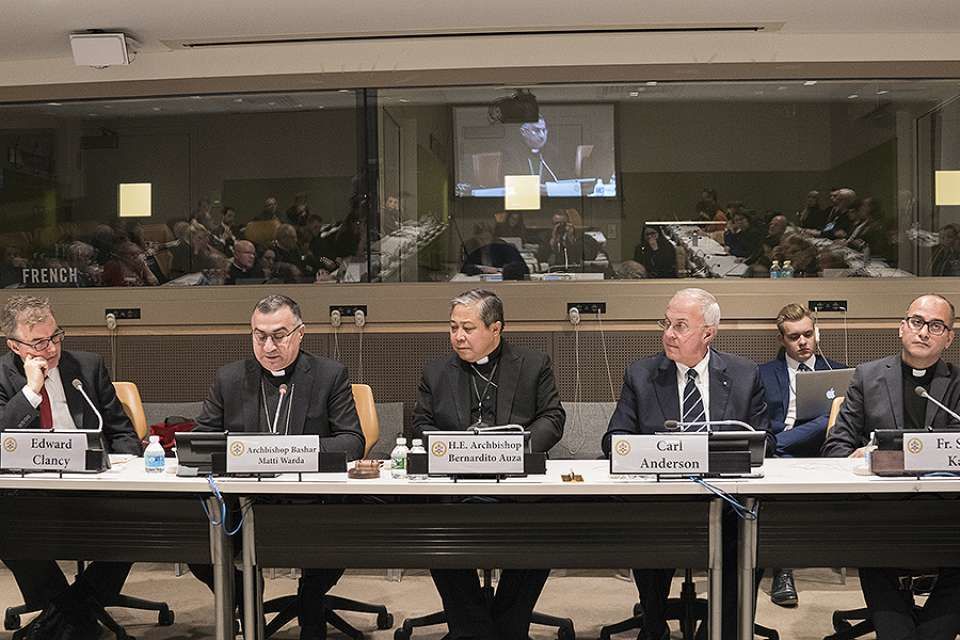A UN panel met last week to discuss the aftermath of the Islamic State’s occupation in Iraq’s Nineveh Plain, saying that the region’s future depends upon the preservation of the practices of pluralism and diversity.
“During ISIS’ occupation of Nineveh, even as it sought to eliminate the religious minorities completely, many from the majority population were also victimized as their rights evaporated,” stated Supreme Knight Carl Anderson of the Knights of Columbus at the event.
“Without minorities, rights often vanish for everyone,” Anderson continued, according to a press release.
The panel was hosted in a joint effort by the Holy See’s Mission to the United Nations and the Knights of Columbus, as well as the United States Conference of Catholic Bishops (USCCB).
The event took place at UN headquarters on Nov. 30 and was titled “Preserving Pluralism and Diversity in the Nineveh Region.” It was also part of the USCCB’s overarching initiative called “Solidarity in Suffering: A Week of Awareness and Education for Persecuted Christians.”
Some of the panelists included Supreme Knight Carl Anderson, Edward Clancy, the director of outreach and evangelization for Aid to the Church in Need, USA, Archbishop Bashar Warda of Erbil, Iraq, Archbishop Bernardito Auza, the Holy See’s permanent observer to the UN, and Fr. Salar Kajo, a parish priest from the Nineveh region.
The panelists emphasized that pluralism and the flourishing of diversity are crucial players for the successful future of Iraq, with a particular emphasis on the local minorities.
Archbishop Warda noted that Christians in particular are a “key partner for the future of pluralism in Iraq,” and should be considered “part of the solution, not part of the problem, in terms of bringing peace and humans rights” to the country.
The Nineveh Plain, a territory between the city of Mosul and Iraqi Kurdistan, was overtaken by the Islamic State in 2014, forcing tens of thousands of people into exile and displacement. Two years later, Iraqi forces liberated the region, which was known to have a large Christian population.
The situation in the Nineveh Plain still remains uncertain, as many families, religious groups and minorities are questioning the return to their homes. During this delicate time, the UN panel voiced that respect and collaboration with minorities is critically important.
To that end, the Nineveh Reconstruction Committee has been created, in which the region’s three major Christian communities are collaborating to work more effectively. These communities include the Chaldean Catholic, Syrian Catholic and Syrian Orthodox churches.
Archbishop Auza noted that the Holy See would put forth committed efforts to make sure that Christians “can return to their places of origin and live in dignity and safety with the basic social, political and economic frameworks necessary to ensure community cohesion.”
“Daesh sought to eliminate pluralism and diversity from the Nineveh Plain,” Auza said.
“Therefore, the only way to make sure Daesh cannot claim victory is to restore, and restore urgently, pluralism and diversity to the region.”

